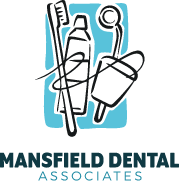If you have bruxism, then the constant grinding of your teeth can seem like an obvious hazard to their health. That much pressure and friction is bound to wear your teeth down, and that can have a few direct consequences such as tooth sensitivity and changing tooth surfaces. However, when left untreated, the dangers of bruxism to the rest of your oral health can become much more significant. At our Mansfield, TX, dental office, we can help you avoid the potentially serious consequences of bruxism to your oral health by addressing the condition as soon as possible.
Learning about bruxism
Bruxism is more than just the occasional instance of clenching or grinding your teeth together. For many people, the act itself is a common reaction to physical pain, stress, or nervousness. On the contrary, bruxism describes the unconscious, forceful grinding of your teeth that can occur for seemingly no reason. You may not always notice it during the day, and you might grind your teeth most often (and most forcefully) while you sleep at night. This means you may not realize you have the condition until its effects become severe, or unless your dentist spots the early signs during a routine dental checkup and cleaning appointment.
The effects of teeth-grinding
When your bruxism continues unchecked, the pressure, friction, and wear on your teeth can lead to a wide range of potential complications with the rest of your oral health as well. For example, bruxism can dramatically increase your risks of:
- Severe tooth damage – As your teeth wear down, they become weaker, making them more susceptible to structural damage. Fractures and breaks are more likely to occur, and will only grow worse under the continued pressure of teeth-grinding.
- Tooth decay (infection) – Weaker teeth are also more vulnerable to harmful oral bacteria, which can lead to tooth decay as they infect your tooth structure. Decayed tooth structure won’t hold up under the force of bruxism, and could become extremely compromised.
- Gum disease – The pressures of grinding your teeth can also cause your gum tissues to recede from their roots, creating large periodontal pockets. Harmful oral bacteria can settle into these pockets, leading to or exacerbating gingivitis – the first stage of gum disease).
- TMJ disorder – Your jaw joints, or TMJs, are the hinges your jaw moves upon as you constantly grind your teeth. The excessive stress on the joints can gradually wear them down and damage them, as well, leading to several forms of discomfort known collectively as TMJ disorder.
Stop bruxism with a custom appliance
Bruxism causes you to grind your teeth so often that it can become a serious threat to the rest of your oral health. For more information about how to treat bruxism and protect your smile, schedule a consultation by calling our dentist’s office in Mansfield, TX, today at 817-473-6227.





Recent Comments